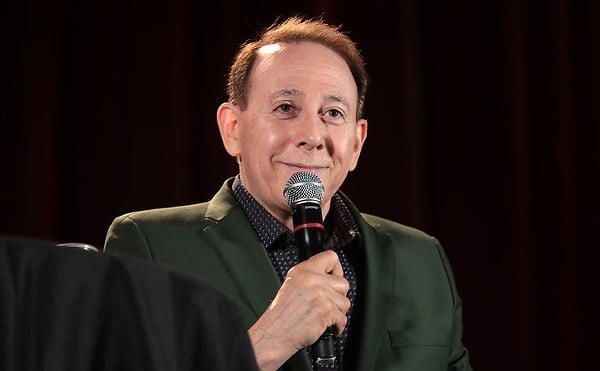In 1924, Nathan Leopold and Dick Loeb were successful students at the prestigious Harvard School outside Chicago when they were accused of the murder of fellow student Bobby Franks. Their defense was commandeered by Clarence Darrow, who had a narrow margin for argument, because the boys admitted they were guilty. Though underage, both were heading straight for the gallows, but Darrow decided to look at the larger social picture and mounted a successful courtroom campaign against capital punishment. "Mercy is the highest attribute of man," he concluded, a sentiment we occasionally hear in our contemporary courtroom dramas, but seldom with such vehemence or eloquence.
Wealth and inexplicable evil make a potent combination, and Leopold and Loeb exerted a powerful fascination. In 1959, their story was melodramatically filmed, with Orson Welles playing an unlikely but still charismatic Darrow. But what does the story have to teach us now? Logan's play suggests that Leopold and Loeb were, in many ways, typical privileged and lonely adolescents with sociopathic tendencies that could only bloom in contact with one another, the dark side of peer pressure that sociologists always love to explore. Nathan Leopold Jr. (Todd Schaefer), a.k.a. Babe, is under the thrall of Richard "Dick" Loeb (Ed Cole), and we only find out how they meet in the final moments of the play. Leopold lost his mother in childhood and is a disdainful and aristocratic teen intellectual with a fascination for birds and Nietschze. Loeb is good-looking and arrogant, with a nervous laugh and a distant family. Logan has written his play as a series of scenes, some extremely short, and he avails himself of a cinematic editing style that's at times Rashomon-esque with time-shifts. As the trial moves forward, Logan interposes scenes of Leopold and Loeb talking about birds, bridge and how they can be über-menschen, supermen. We also see the murder, in a shocking piece of pantomime. Throughout, the pair's loyalty and love for one another only seem to grow, so that by the ingeniously staged conclusion, where they discuss their probable fate in adjoining cells, their inevitable separation seems oddly tragic. No one will understand them as they understand and accept one another -- even though their union has resulted in monstrous crimes.
At the New Jewish Theatre, director Brad Schwartz has done marvels with an impossible playing space. Four rows of seats are placed on risers, which line the three walls of a small, rectangular cinderblock room. The central playing space has a platform with a gate that's used for courtroom testimony (some of the audience sitting where the judge would); crates, small tables and chairs are all painted black. The space is so modest that, for the most part, the actors are responsible for shifting pieces in the frequent blackouts (oh, for some felt on the bottoms of those crates -- the clattering was distracting). But Schwartz has done even finer work with Schaefer and Cole as the murderous duo.
Michelle Siler has provided them with splendid belted suits, and the men have had their hair cropped in period styles, but they are thoroughly believable as denizens of their class and era. Schaefer's expressions -- supercilious toward all but Dick -- hunched posture and grudging gestures show repression and anxiety beautifully. At times he is as birdlike as the creatures he adores. Cole, on the other hand, plays Loeb as Jack Armstrong-turned-psychopath, and it is easy to see Leopold's fascination. His chiseled features and confident poses make him a chilling character, especially when he becomes a celebrity in the courtroom, a handsome young murderer deluged with mash notes. Not so for Leopold, who remains coldly outside the ghastly events, though he never stops analyzing his own reaction. When Leopold likens Loeb to "a hard perfect gem ... how can I hope to escape from that light?" it's tragically believable.
Barry Hyatt makes a credible enough Darrow (he doesn't turn up until nearly the end of Act 1). Though the trick with this part (here, and in other courtroom dramas -- the lawyer was as busy as Alan Dershowitz in his day) is to make him understated and memorable rather than underplayed, and Hyatt doesn't have a particularly commanding presence, which only makes John Reidy as Robert Crow, the DA prosecuting the case, act all the louder and harder, especially in their one interaction, though otherwise he shows subtlety and modulation while embodying public outrage. Though Logan evidently spent years researching his play, I wonder whether two star attorneys would have used quite so much profanity with one another -- it might have been the Roaring '20s, but didn't a certain amount of verbal decorum prevail among middle-class men?
Charles Lehman, Merryl Crivelli and Charles Heuvelman as reporters and various walk-ons all acquitted themselves well, especially Lehman, who got the widest range, from stooge cop to equivocal analyst. Ultimately, though, Schaefer and Cole are the reasons you need to go see this play -- they make crime and punishment glamorous, ghastly and thoroughly mesmerizing.
Never the Sinner continues through Feb. 13.





